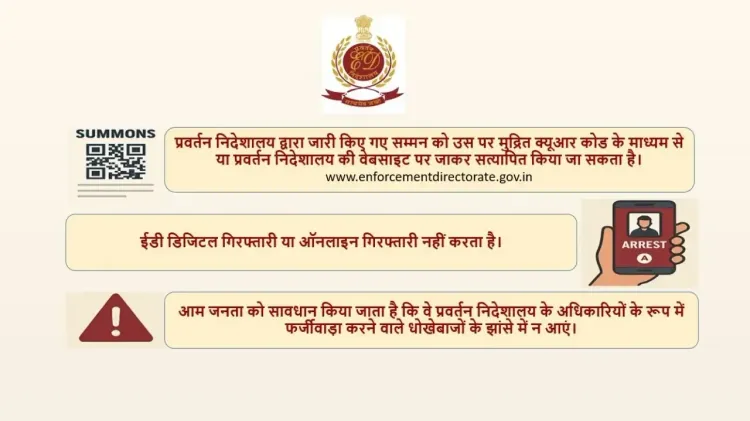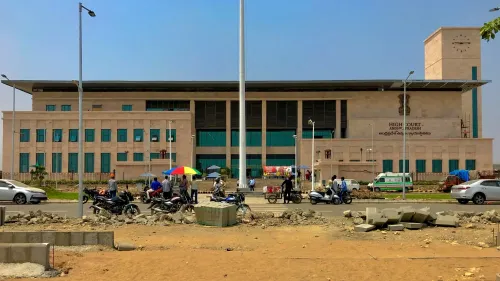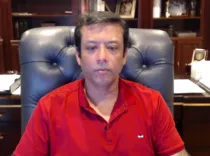How is ED Enhancing Citizen Safety with Verifiable QR Codes for Summons?

Synopsis
Key Takeaways
- The ED is issuing summons with QR codes for verification.
- Citizens are encouraged to verify the authenticity of summons.
- Ongoing efforts to combat cyber fraud are being implemented.
- Awareness campaigns are in place to inform the public.
- The Ministry of Home Affairs is enhancing law enforcement capabilities.
New Delhi, Nov 20 (NationPress) — In response to alarming reports of counterfeit summons being circulated by fraudsters impersonating the Enforcement Directorate (ED), the agency has rolled out new measures to assist citizens in confirming the legitimacy of such documents, as stated by the office of Finance Minister Nirmala Sitharaman on Thursday.
These counterfeit summons often closely mimic authentic ED notices, creating confusion. To combat this issue, the ED now issues system-generated summons that include a QR code along with a unique passcode, according to the statement.
Citizens can validate the summons from the ED by scanning the QR code printed on the document or by visiting the official ED website, as explained in the announcement.
“The ED does not perform digital or online arrests. Citizens should stay alert and not fall victim to fraudsters impersonating ED officials,” the social media post emphasized.
This announcement comes amid ongoing incidents of “digital arrests” where fraudsters are posing as officials from various agencies, including police, customs, ED, CBI, and RBI, to extort money from unsuspecting individuals.
According to the Seventh Schedule of the Constitution of India, ‘Police’ and ‘Public Order’ fall under State subjects, making states and Union Territories responsible for preventing, detecting, investigating, and prosecuting crimes, including cybercrimes and digital arrest scams through their law enforcement agencies.
The Central Government supports these efforts by providing advisories and financial aid aimed at enhancing the capabilities of law enforcement agencies, as per the official statement.
To fortify the framework against cybercrimes, including digital arrest scams, the Ministry of Home Affairs has launched the ‘Indian Cyber Crime Coordination Centre’ (I4C), dedicated to addressing all forms of cybercrime in a systematic and unified manner.
Additionally, the Central Government initiated a widespread awareness campaign regarding digital arrest scams, which encompasses newspaper advertisements, announcements in Delhi Metro, collaborations with social media influencers for special posts, and campaigns via Prasar Bharti and electronic media.
Proactive measures have also been implemented to identify and block over 1,700 Skype IDs and 59,000 WhatsApp accounts associated with digital arrests.
The government, alongside Telecom Service Providers (TSPs), has established a system to detect and block incoming international spoofed calls that display Indian mobile numbers, which have been used by cybercriminals in recent fake digital arrest incidents, including FedEx scams and impersonation of government officials. Directions have been issued to TSPs for blocking such calls, as highlighted in the statement.









